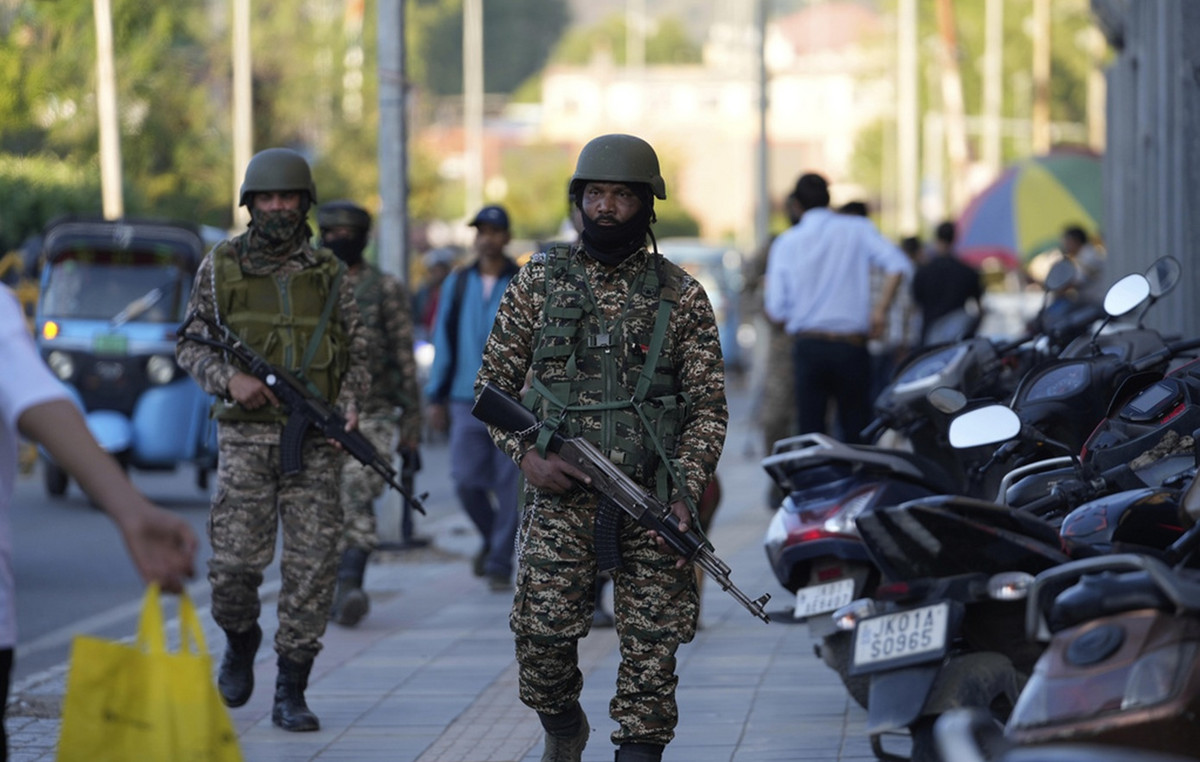Hospitalizations of babies under 1 year old due to pneumonia, bronchitis and bronchiolitis in units of the Unified Health System (SUS) increased by 24% in 2023 compared to the previous year. According to a survey by the Child Health Observatory (Observa Infância), an initiative of the Oswaldo Cruz Foundation (Fiocruz) and the Arthur Sá Earp Neto University Center/Petrópolis School of Medicine (UNIFASE/FMP), there were 153 thousand hospitalizations last year, which represented a record, with an average of 419 per day.
“It is the highest number recorded in the last 15 years,” highlighted Fiocruz in a note published on its website.
The study also showed that the SUS invested R$154 million in 2023 in the treatment of hospitalized babies. The amount is around R$53 million more than in 2019, before the COVID-19 pandemic.
When analyzing hospitalization rates by region, Observa Infância found a downward trend until 2016. Depending on the region, the data varied more or less in the period from 2016 to 2019. In the first year of the pandemic, in 2020, hospitalizations had an average drop of 340%. In the following years, however, there were constant increases, until reaching the record in the historical series, in 2023.
The regions that had the highest hospitalization rates last year were the South and the Central-West. “The intense cold and the fires associated with the dry climate, respectively, contribute to making children’s respiratory systems more vulnerable,” Fiocruz reported.
The coordinator of Observa Infância, Cristiano Boccolini, pointed to climate change and low childhood vaccination coverage as the main possibilities for the increase in the number of hospitalizations.
“The reduction in vaccination against respiratory diseases, possibly due to the Covid-19 pandemic, and extreme weather conditions may have contributed to the vulnerability of babies to severe respiratory infections,” the researcher analyzed in the note.
Because of this situation, the coordinator of Observa Infância stated that it is essential to keep the vaccination records of babies and children up to date. The researcher also emphasized that it is also important for pregnant women to have their vaccinations up to date, since mothers ensure that their babies have antibodies in the first months of life. Cristiano Boccolini defended the inclusion of the RSV (respiratory syncytial virus) vaccine, already approved by the National Health Surveillance Agency (Anvisa), in the SUS calendar.
The hospitalization data included in the survey are part of the SUS Hospital Admissions System and the birth information is in the National Live Birth System between the years 2008 and 2023.
Hospitalizations of babies under 1 year old due to pneumonia, bronchitis and bronchiolitis in units of the Unified Health System (SUS) increased by 24% in 2023 compared to the previous year. According to a survey by the Child Health Observatory (Observa Infância), an initiative of the Oswaldo Cruz Foundation (Fiocruz) and the Arthur Sá Earp Neto University Center/Petrópolis School of Medicine (UNIFASE/FMP), there were 153 thousand hospitalizations last year, which represented a record, with an average of 419 per day.
“It is the highest number recorded in the last 15 years,” highlighted Fiocruz in a note published on its website.
The study also showed that the SUS invested R$154 million in 2023 in the treatment of hospitalized babies. The amount is around R$53 million more than in 2019, before the COVID-19 pandemic.
When analyzing hospitalization rates by region, Observa Infância found a downward trend until 2016. Depending on the region, the data varied more or less in the period from 2016 to 2019. In the first year of the pandemic, in 2020, hospitalizations had an average drop of 340%. In the following years, however, there were constant increases, until reaching the record in the historical series, in 2023.
The regions that had the highest hospitalization rates last year were the South and the Central-West. “The intense cold and the fires associated with the dry climate, respectively, contribute to making children’s respiratory systems more vulnerable,” Fiocruz reported.
The coordinator of Observa Infância, Cristiano Boccolini, pointed to climate change and low childhood vaccination coverage as the main possibilities for the increase in the number of hospitalizations.
“The reduction in vaccination against respiratory diseases, possibly due to the COVID-19 pandemic, and extreme weather conditions may have contributed to the vulnerability of babies to severe respiratory infections,” the researcher analyzed in the note.
Because of this situation, the coordinator of Observa Infância stated that it is essential to keep the vaccination records of babies and children up to date. The researcher also emphasized that it is also important for pregnant women to have their vaccinations up to date, since mothers ensure that their babies have antibodies in the first months of life. Cristiano Boccolini defended the inclusion of the RSV (respiratory syncytial virus) vaccine, already approved by the National Health Surveillance Agency (Anvisa), in the SUS calendar.
The hospitalization data included in the survey are part of the SUS Hospital Admissions System and the birth information is in the National Live Birth System between the years 2008 and 2023.
Childhood Watch
The Child Health Observatory was created to disseminate scientific data and information about the health of children up to 5 years old to society. “The objective is to expand access to qualified information and facilitate understanding of data obtained from national information systems,” said Fiocruz.
According to Fiocruz, the scientific evidence analyzed resulted from investigations developed by researchers Patricia and Cristiano Boccolini within the scope of the Institute of Scientific and Technological Communication and Information in Health (Icict/Fiocruz) and the Arthur Sá Earp Neto University Center/Petrópolis School of Medicine (UNIFASE/FMP), with resources from the National Council for Scientific and Technological Development (CNPq) and the Bill and Melinda Gates Foundation.
Source: CNN Brasil
I’m James Harper, a highly experienced and accomplished news writer for World Stock Market. I have been writing in the Politics section of the website for over five years, providing readers with up-to-date and insightful information about current events in politics. My work is widely read and respected by many industry professionals as well as laymen.







